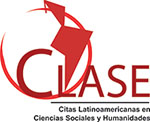La Gestión de la Innovación como Herramienta al cambio Organizacional en las Universidades Manabitas
DOI:
https://doi.org/10.23857/dc.v11i1.4273Palabras clave:
Gestión de la innovación, cambio organizacional, educación superiorResumen
La gestión de la innovación en las universidades de Manabí es un factor clave para impulsar el cambio organizacional y mejorar su capacidad de adaptación a los desafíos educativos actuales. Este estudio analiza cómo la innovación tecnológica, pedagógica y administrativa ha sido implementada en estas instituciones, identificando tanto sus logros como las barreras que enfrentan. Mediante un enfoque mixto de investigación, que combina entrevistas cualitativas y encuestas cuantitativas, se evidenció que la falta de recursos, la resistencia al cambio y la ausencia de una visión compartida limitan la innovación. No obstante, las universidades que han adoptado un liderazgo proactivo, promovido la formación continua y fortalecido alianzas estratégicas han logrado avances significativos. Se concluye que una gestión efectiva de la innovación puede transformar las universidades manabitas, aumentando su eficiencia y relevancia en el contexto educativo global.
Citas
• Braun, V., & Clarke, V. (2006). Using thematic analysis in psychology. Qualitative Research in Psychology, 3(2), 77-101. https://doi.org/10.1191/1478088706qp063oa
• Chesbrough, H. W. (2003). Open innovation: The new imperative for creating and profiting from technology. Harvard Business School Press.
• Christensen, C. M., & Eyring, H. J. (2011). The innovative university: Changing the DNA of higher education from the inside out. Jossey-Bass.
• Creswell, J. W. (2014). Research design: Qualitative, quantitative, and mixed methods approaches (4th ed.). SAGE Publications.
• Drucker, P. F. (1985). Innovation and entrepreneurship: Practice and principles. Harper & Row.
• Fullan, M. (2016). The new meaning of educational change (5th ed.). Teachers College Press.
• Guest, G., Bunce, A., & Johnson, L. (2006). How many interviews are enough? An experiment with data saturation and variability. Field Methods, 18(1), 59-82.
• Hernández, R., Fernández, C., & Baptista, P. (2014). Metodología de la investigación (6th ed.). McGraw-Hill Education.
• Kotter, J. P. (1996). Leading change. Harvard Business Review Press.
• Kvale, S., & Brinkmann, S. (2009). Interviews: Learning the craft of qualitative research interviewing (2nd ed.). SAGE Publications.
• Likert, R. (1932). A technique for the measurement of attitudes. Archives of Psychology, 22(140), 5-55.
• López-Segrera, F. (2017). La universidad latinoamericana ante los retos del siglo XXI: Globalización, internacionalización y cambio tecnológico. Fondo de Cultura Económica.
• Morin, E. (2018). La vía para el futuro de la humanidad. Paidós.
• Schwab, K. (2016). The Fourth Industrial Revolution. Crown Business.
• Teddlie, C., & Tashakkori, A. (2009). Foundations of mixed methods research: Integrating quantitative and qualitative approaches in the social and behavioral sciences. SAGE Publications
Descargas
Publicado
Cómo citar
Número
Sección
Licencia
Derechos de autor 2025 Amado Antonio Mendoza Briones, Evelyn Dayana Cano Lara, María Cecibel Mendoza Briones, José Luis Morante Galarza, Johnny Edison Ponce Andrade, Richard Gonzalo Toro Loor

Esta obra está bajo una licencia internacional Creative Commons Atribución 4.0.
Authors retain copyright and guarantee the Journal the right to be the first publication of the work. These are covered by a Creative Commons (CC BY-NC-ND 4.0) license that allows others to share the work with an acknowledgment of the work authorship and the initial publication in this journal.






